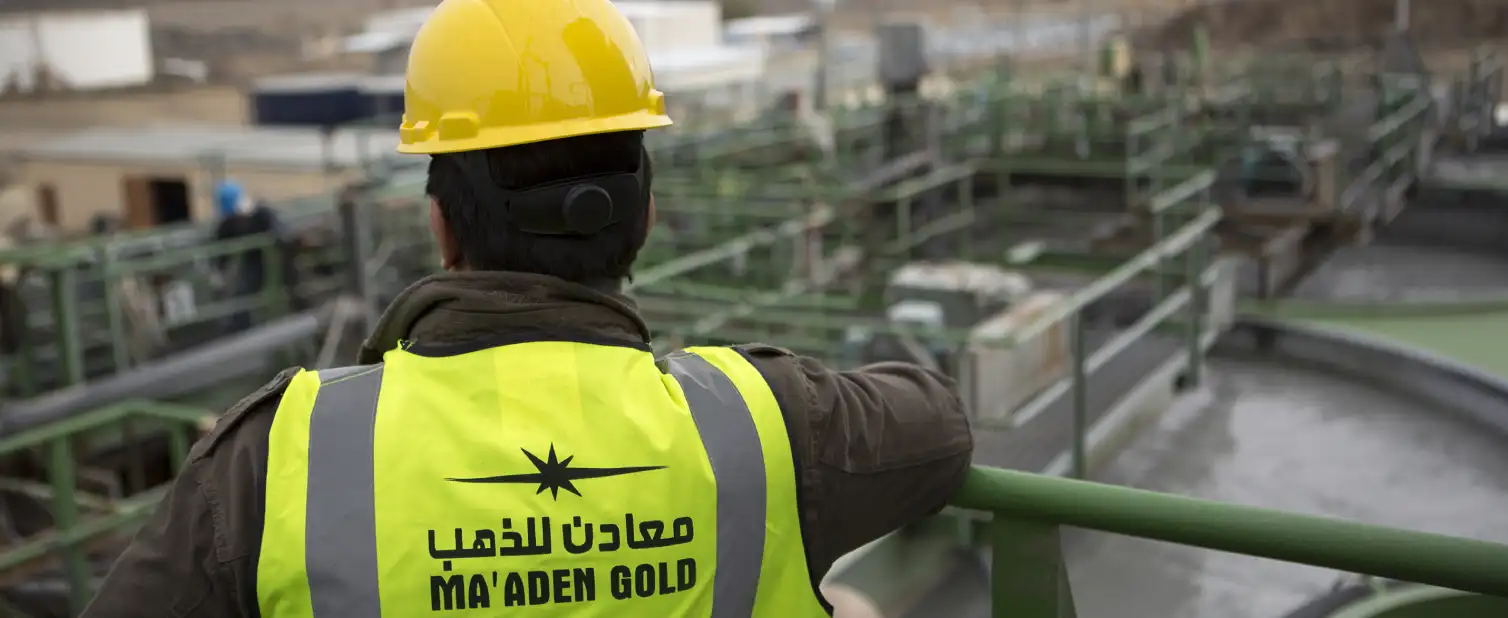




In 2021 Ma’aden completed a water usage footprint, setting 2020 as the baseline year, with targets to reduce groundwater usage intensity across applicable affiliates.
Gold mining operations can be very water intensive. In 2021, a major water stewardship initiative was undertaken by Ma’aden’s gold mining affiliate Ma’aden Gold and Base Metals (MGBM) to reduce the amount of fresh groundwater used in its gold mining operations by switching to alternatives. As a result, MGBM developed a groundwater reduction strategy, using National Water Company (NWC) treated sewage wastewater in all upcoming new gold mines. This has eliminated the use of fresh groundwater.
Overall, 36% of MGBM’s overall water needs are met by using treated water. As Ma’aden’s gold operations grow, the model of finding innovative ways to reduce water usage will be mainstreamed as business as usual.
The soon-to-be-completed Mansourah Massarah mine, along with the expansion of Mahd, and the evaluation of Ar Rjum will all be 100% reliant on treated sewage water. These mines will be powered by 20% renewable solar energy by 2025. This approach is projected to reduce MGBM’s groundwater intensity by over 50% by 2030.
Each affiliate is empowered and encouraged to contribute to Ma’aden’s Water Stewardship goal in the way that is most effective for their operations. In 2021 Ma’aden’s phosphate mining affiliates expanded upon the partnership with NWC started in 2020 by signing a water usage Memorandum of Understanding for our Wa’ad Al Shamal operational site to provide phosphate operations with treated wastewater.
Ma’aden also plans to develop infrastructure for the transportation of wastewater from treatment facilities to operational sites in the area. This project is planned to be completed in 2023 and will meet most of the water requirements for existing facilities and the planned new Phosphate 3 facility. This is projected to reduce Ma’aden’s phosphate-related groundwater use by 50%.